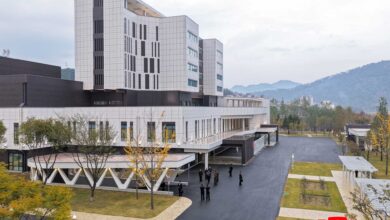Early in July Juche 83 (1994), triplets were born in a remote village of the DPRK.
Their father was an officer of the Korean People’s Army.
Although the triplets received proper medical care, their condition was a cause for concern . Of the three, the condition of the third, which was the smallest, was particularly poor.
The neighbours were worried about saving the babies , especially as the village was difficult to access . All the roads into it were blocked because of heavy rain, and as the days went by the doctors grew more apprehensive.
But they did not lose hope; they were convinced that the triplets and their mother would be flown to Pyongyang according to the State measure as soon as the weather improved, because the country regarded the birth of triplets as a good omen for its prosperity.
But the sky grew darker, lightning flashed overhead followed by thunder, and the rain grew heavier. Worse still, the sad news of President Kim Il Sung’s sudden death was reported.
The doctors, as they watched over the incubators, wailed over his death and the babies’ mother collapsed. The triplets were no longer mentioned; it was as if everyone had forgotten they even existed.
On July 12, an order was issued by phone and by telegraph:
• The Air Force of the KPA shall immediately dispatch a plane to Changdo-ri, Kimhwa County, to save the critically-ill triplets and their mother;
• The Pyongyang Maternity Hospital shall send a strong medical team led by its technical deputy head to the site;
• Pyongyang Airport shall prepare for the plane to land, whatever the weather conditions.
Who had given this order at a time when the whole country was weeping over the death of their President? Later, it became known that it was Chairman Kim Jong Il.
So, a plane flew to the destination through the heavy rain.
155 days after they were taken to the maternity hospital, the triplets left it in good health.

